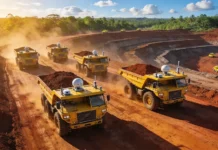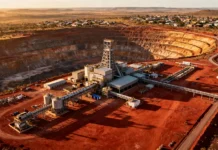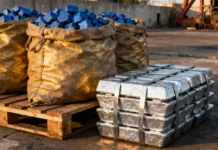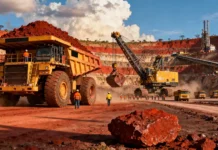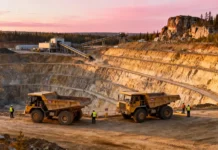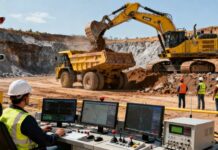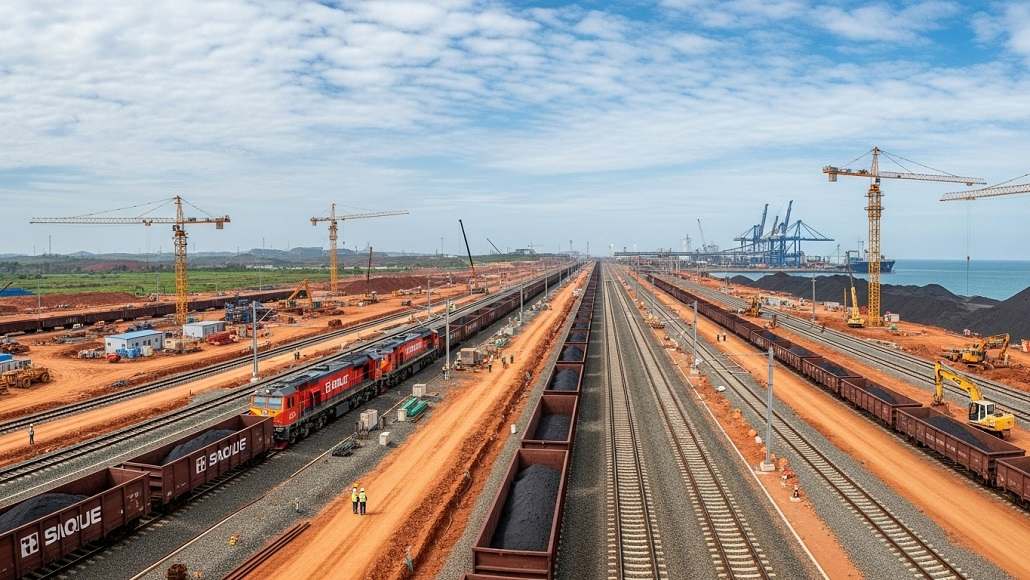Africa rail Infrastructure is getting a new lease of life. Important transportation lines are swiftly increasing to make the continent’s natural resources more accessible and improve trade linkages across the globe. The Italian development bank Cassa Depositi e Prestiti gave the Africa Finance Corporation a €250 million, 10-year loan in June to speed up the construction of the Lobito Corridor. This is a very important mineral transport network that links Angola, Zambia, and the Democratic Republic of the Congo to markets throughout the world. The money would assist pay for procuring equipment and services from Italian companies for the corridor and other renewable energy initiatives.
The Lobito Corridor is one of the many key projects that will be shown off during African Mining Week (AMW) in Cape Town from October 1 to 3, 2025. AMW will show off investment opportunities in Africa’s mining and infrastructure value chains that might have a big effect. It will focus on how rail logistics are converting mineral-rich places that are cut off from the sea into competitive, export-oriented cities.
Simandou Africa Rail infrastructure Reaches a Key Stage
In June, Guinea-Conakry accomplished an important goal in West Africa when it completed a 903-meter tunnel on the 650-km Simandou Railway. The line will transfer up to 120 million tonnes of high-grade iron ore from the Simandou mine per year once it is up and running in early 2026. The deposit is believed to contain 2 billion tonnes of reserves. In February, the U.S. company Wabtec secured a $248 million contract to provide locomotives for the project. A high-level panel at AMW 2025 dubbed “From Mines to Markets: Strengthening Trade and Connectivity for Africa’s Mineral Future” will discuss about how megaprojects like Simandou are making Africa’s mining value chain stronger.
Mauritania Moves Forward with Expanding the Iron Ore Rail
Mauritania has also made progress in building railroads. It secured a €113 million loan from the European Investment Bank (EIB) in June to assist pay for the expansion of a key iron ore railway between Zouérat and Nouadhibou. The initiative would let Mauritania export its iron ore to other nations more easily. The national mining company SNIM, the EIB, and private investors have all put in a total of €461 million to assist it. AMW 2025 will provide investors from all around the world a chance to meet new people in Mauritania and other places like it.
Cameroon makes bauxite transportation better
Canyon Resources of Australia obtained a 9.1% stake in Cameroon Rail, the main rail operator in the nation, to aid with the logistics of the Minim Martap Bauxite Mine in Central Africa. The acquisition was made from TotalEnergies and Société d’Exploitation des Bois du Cameroun. It is supposed to make it easier for trains to go to and from the mine and the port. This will make it simpler to ship out 6.4 million tonnes of bauxite per year. AMW will have investment-ready opportunities related to bauxite and other vital minerals that are assisting the energy transition.
China Builds More Rail Infrastructure in Africa
The China Railway Engineering Group made a $2.15 billion contract with Tanzania and Burundi in February to build a 282-kilometer railway that goes over the border. The line is meant to assist in exporting up to 3 million tonnes of minerals per year. This will make it simpler for firms to go to markets in the region and throughout the globe. The China Development Bank handed Nigeria $254.76 million in January to help pay for the Kano-Kaduna rail line, which connects the Lagos-Ibadan and Kano-Maradi lines. This project will make it simpler to carry minerals and energy across West Africa. The China-Africa Cooperation on Minerals Roundtable will be held at AMW 2025. Leaders from both the public and corporate sectors will be there to improve connections between the two nations. The Invest in Nigeria Infrastructure event will also talk about important projects like the Kano-Kaduna rail project that will help Nigeria’s mining and logistics sectors thrive.


